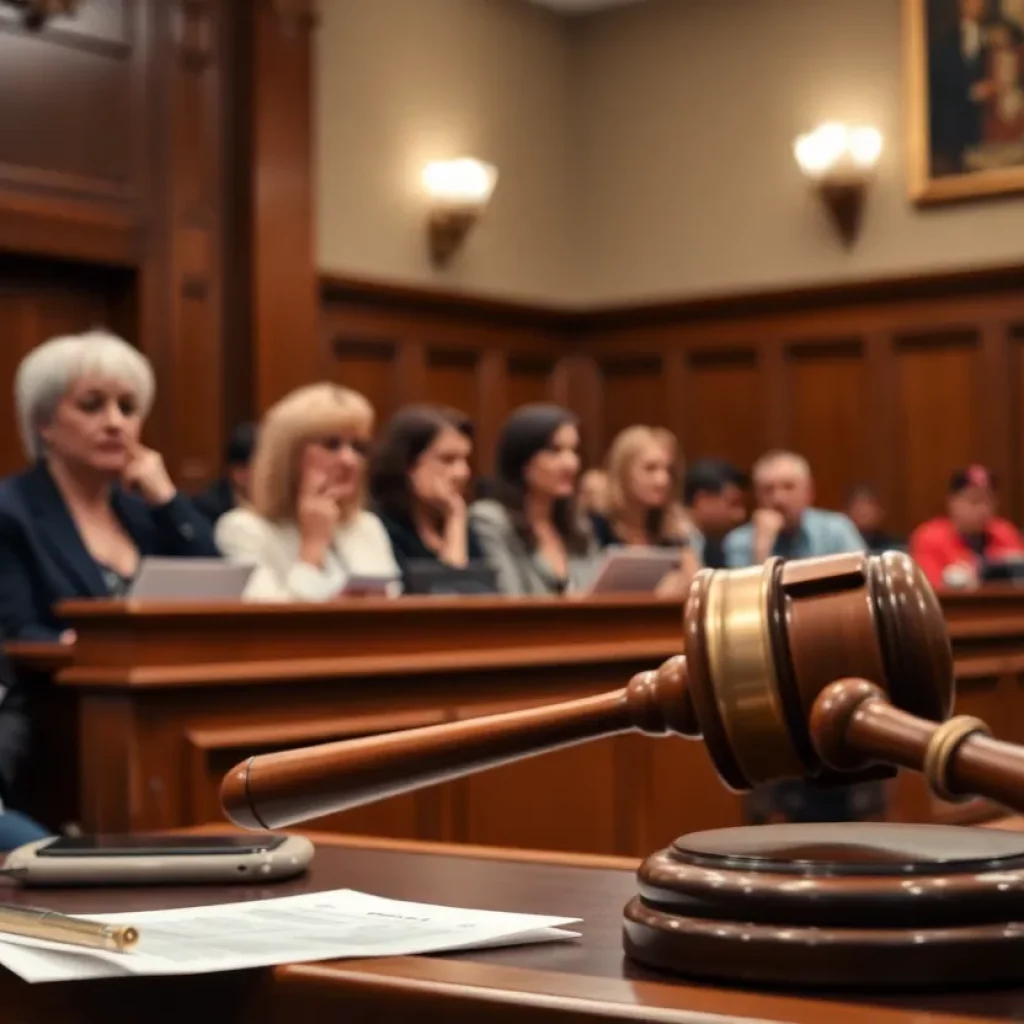News Summary
A jury in New Orleans ruled in favor of the family of Jeanine H., awarding them $3 million in a mesothelioma lawsuit against Johnson & Johnson, highlighting ongoing concerns about the safety of talc products. Jeanine, who used the company’s baby powder for years, passed away from mesothelioma, prompting her family to seek accountability for alleged negligence. This case reflects broader public health implications regarding asbestos exposure linked to talc and the legal ramifications faced by the company.
The Striking Verdict: Johnson & Johnson Ordered to Pay $3 Million in a Mesothelioma Case
A jury in New Orleans has delivered a landmark verdict, awarding the family of Jeanine H. $3 million in a mesothelioma lawsuit against pharmaceutical giant Johnson & Johnson. This significant ruling comes after the tragic passing of Jeanine H. in January 2024, at the age of 72, and exemplifies the ongoing legal battles faced by the company over allegations related to its widely used baby powder.
A Life Cut Short by Mesothelioma
Jeanine H. was a longtime user of Johnson & Johnson’s Baby Powder, a product that has been a staple in households for decades due to its acclaimed moisture-absorbing properties. Tragically, it is alleged that her extensive use of this talc-based product contributed to her diagnosis of mesothelioma, a rare and aggressive cancer predominantly linked to asbestos exposure. After her death, her family courageously continued the lawsuit, seeking accountability for what they believe was negligence on the part of the company.
The Dangers of Talc and Asbestos
Talc, the primary ingredient in Johnson & Johnson’s Baby Powder, has come under scrutiny due to the potential for contamination with asbestos—a known carcinogen and the sole cause of mesothelioma. While talc has been hailed for its safety and effectiveness, studies have indicated that its fibers can easily become airborne, posing serious health risks to those who use it, particularly those applying it near their respiratory systems.
Other dangerous cancers linked to asbestos exposure include lung cancer and ovarian cancer, further highlighting the severe public health implications of this issue. The Centers for Disease Control and Prevention has recognized these risks and proposed the establishment of a National Mesothelioma Registry to advance research and treatment for patients suffering from this aggressive disease.
Johnson & Johnson’s Ongoing Legal Struggles
Despite the growing number of lawsuits citing the health risks of their talc products, Johnson & Johnson has steadfastly denied the presence of asbestos in their baby powder. However, evidence has emerged from numerous lawsuits, as well as findings from the FDA, revealing trace amounts of asbestos in some of the company’s talc samples. Reports indicate that company executives were aware of the potential dangers related to asbestos yet failed to disclose this critical information to the public.
In an attempt to mitigate the mounting legal challenges, Johnson & Johnson has previously filed for Chapter 11 bankruptcy through a subsidiary, a strategy known as the “Texas Two-Step.” This maneuver involves creating a separate company to manage litigation claims, but all three attempts have faced rejection in court systems. The latest bankruptcy filing was blocked by a judge just days before the trial commenced in March 2025.
A Grim Reality: Asbestos-Related Deaths
Louisiana has been particularly hard-hit by asbestos exposure. Between 1999 and 2017, the state recorded a staggering 5,092 asbestos-related deaths, including 927 from mesothelioma and 491 from asbestosis, indicating a serious public health crisis. The state is home to over 211,000 veterans, many of whom served during times when asbestos use was at its peak, placing them at an elevated risk for developing asbestos-related diseases.
Implications for Public Health and Safety
The verdict in New Orleans underscores not only the legal implications for Johnson & Johnson but also the broader public health concerns surrounding asbestos exposure. As litigation continues, questions remain about the safety of talc products and the responsibilities of companies in disclosing potential risks associated with their products. The trial highlighted significant issues surrounding expert testimony and the weight of the evidence against the company, paving the way for future cases related to mesothelioma and asbestos exposure.
The ongoing battle between consumers and corporations like Johnson & Johnson serves as a stark reminder of the potential hazards associated with everyday products and the critical need for transparency in public health issues. As the legal landscape continues to evolve, the ramifications of this case will likely be felt for years to come.
Deeper Dive: News & Info About This Topic
HERE Resources
Asbestos Litigation: Historic Lawyer Case to Current Challenges
Texas Judge Investigates Asbestos in Talc Amid Bankruptcy Battle
Texas Bankruptcy Judge Investigates Lawyer’s Role in Talc Asbestos Claims
Understanding Personal Injury Law in Arkansas: Insights from a Lawyer
Controversial Building Materials Still Legal in the U.S. Raise Alarm
Charleston Water System Alerts Residents to Lead Presence in Water
Lawyer Faces Consequences After Submitting AI-Generated Brief
The Ongoing Asbestos Crisis: Calls for Legal Accountability
Legal Turmoil Shuts Down Asbestos Clinic in Libby, Montana
Massachusetts Lawyers Prepare for Work Stoppage Over Pay Issues
Additional Resources
- Mesothelioma Guide: New Orleans Mesothelioma Verdict Against Johnson & Johnson
- Mesothelioma Guide: P/D Surgery for Mesothelioma Gives Patients Shot at Cancer-Free Life
- Mesothelioma Guide: Asbestos Clinic in Libby, Montana, Closes After Fraud Claims
- Mesothelioma Guide: Mesothelioma Specialist Seeing Patients at Tampa VA Hospital
- Mesothelioma Guide: Johnson & Johnson’s Bankruptcy Attempt for Mesothelioma Lawsuits
Author: STAFF HERE CHARLESTON
The CHARLESTON STAFF WRITER represents the experienced team at HEREcharleston.com, your go-to source for actionable local news and information in Charleston, Charleston County, and beyond. Specializing in "news you can use," we cover essential topics like product reviews for personal and business needs, local business directories, politics, real estate trends, neighborhood insights, and state news affecting the area—with deep expertise drawn from years of dedicated reporting and strong community input, including local press releases and business updates. We deliver top reporting on high-value events such as the Spoleto Festival USA, Charleston Wine + Food Festival, and the MOJA Festival. Our coverage extends to key organizations like the Charleston Metro Chamber of Commerce and the Charleston Museum, plus leading businesses in tourism and maritime industries that power the local economy such as South Carolina Ports Authority and the Charleston Visitor Center. As part of the broader HERE network, including HEREaiken.com, HEREbeaufort.com, HEREchapin.com, HEREcharleston.com, HEREclinton.com, HEREcolumbia.com, HEREgeorgetown.com, HEREgreenwood.com, HEREgreenville.com, HEREhiltonhead.com, HEREirmo.com, HEREmyrtlebeach.com, HEREnewberry.com, HERErockhill.com, HEREspartanburg.com, HEREaustin.com, HEREcollegestation.com, HEREdallas.com, HEREhouston.com, and HEREsanantonio.com, we provide comprehensive, credible insights into South Carolina's dynamic landscape.










